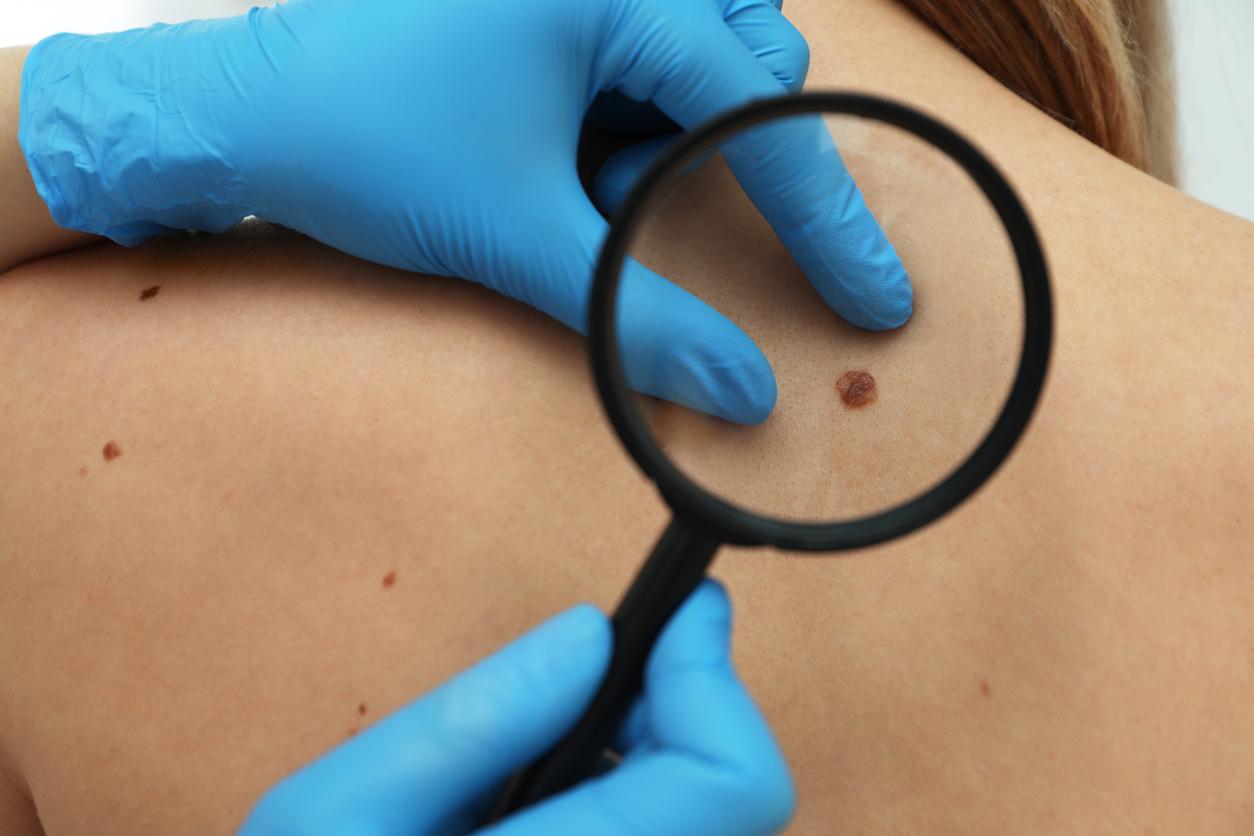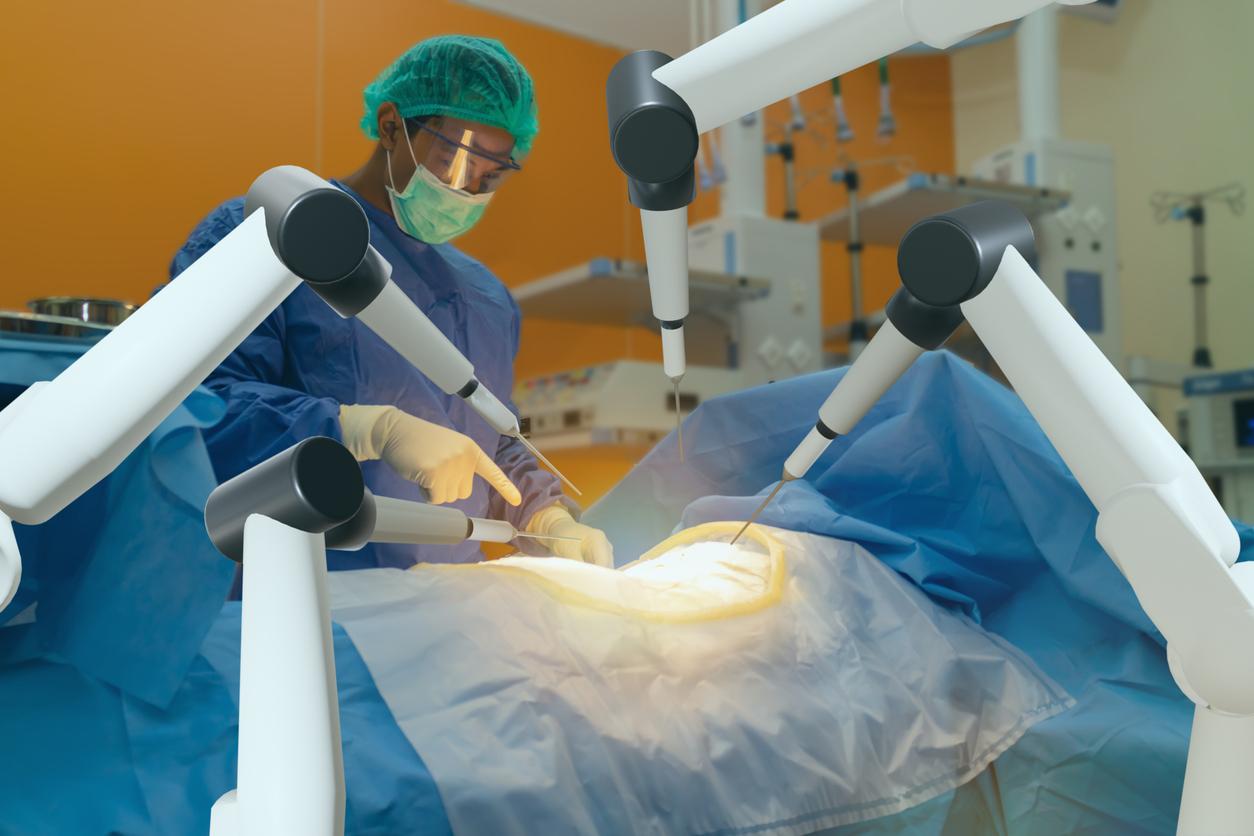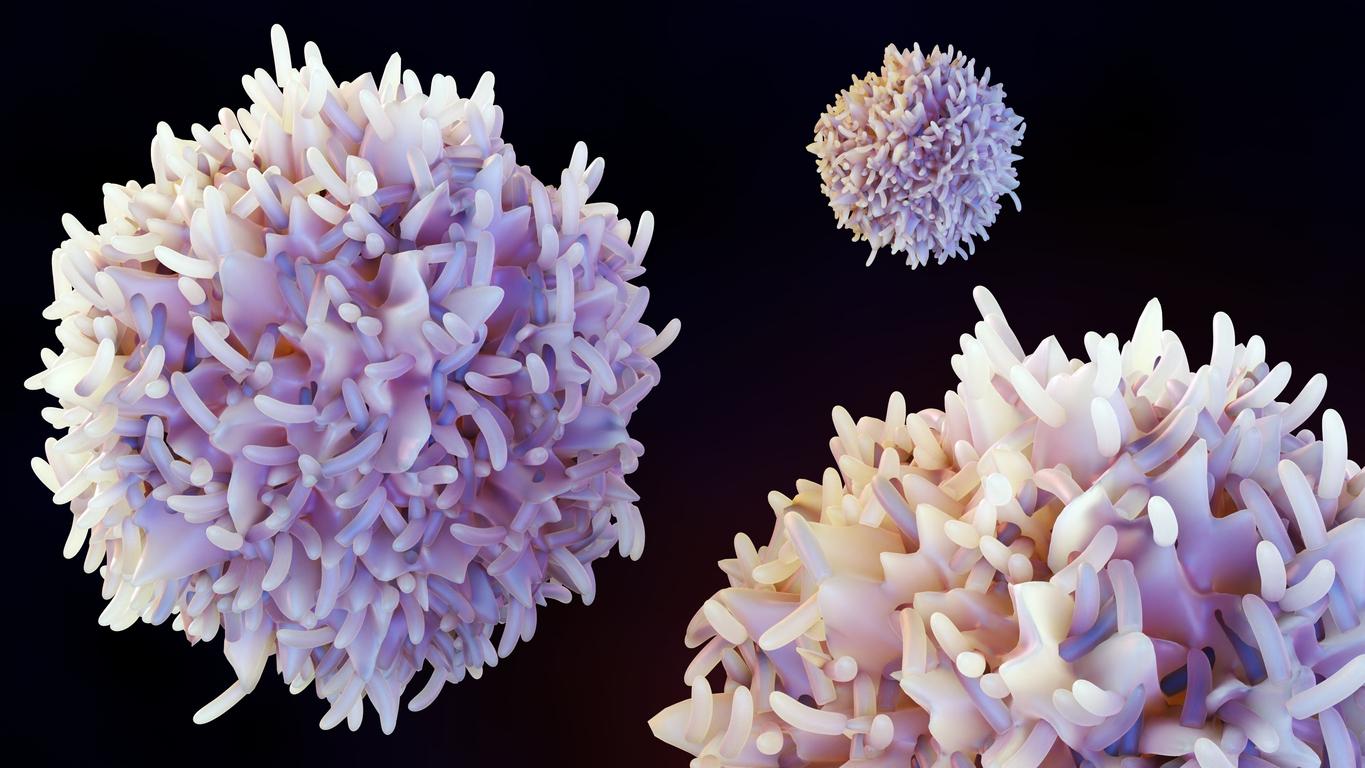According to Canadian researchers, faecal samples could help people with cutaneous melanoma respond better to treatment with immunotherapy. They are preparing to launch a clinical trial.

Between 1980 and 2012, the number of new cases of skin cancer more than tripled in France. This disease now affects nearly 80,000 new people each year. In 10% of cases, those diagnosed have melanoma. While this form of skin cancer is the rarest, it is also the most aggressive. With 15,404 new cases of cutaneous melanoma estimated in 2017 in metropolitan France (8,061 men and 7,343 women) and 1,783 deaths (1,036 men and 747 women), this disease represents nearly 4% of all cancers and 1.2% of cancer deaths.
Cutaneous melanoma has a good prognosis if detected early enough, hence the importance of early diagnosisexplains theNational Cancer Institute. Treatment is then based on surgical excision. On the other hand, diagnosed late, the patient has much less chance of recovering. Indeed, this cancer has a high metastatic potential: it can spread rapidly to ganglionic relays and to other organs. Doctors then try complementary treatments such as lymph node dissection, radiotherapy, chemotherapy, excision of metastases or even immunotherapy.
The latter aims to stimulate the immune system of a patient to attack and destroy the cancer. While these treatments can greatly improve the survival of patients with melanoma, they are effective in only 40-50% of them. This is why researchers at the Lawson Health Research Institute in Canada are currently studying the impact of fecal implantations on the longevity of patients with cutaneous melanoma treated with immunotherapy. They are preparing to launch a clinical trial, as indicated by the press release published on August 16 on their official website.
Preliminary research has shown that the human microbiome, the diverse collections of microbes in our body, may play a role in a patient’s response to immunotherapy treatment. “The gut microbiome helps establish the immune system at an early age. It seems logical that a healthy gut could improve the response to immunotherapy,” says Dr. Jeremy Burton, a scientist specializing in cancer research. microbiome. “This led us to consider the potential of faecal transplants,” he continues. The goal is therefore to transplant the donor’s microbiome so that the healthy bacteria colonize the patient’s intestine.
“Our institute is well placed to move forward”
In a first phase of a clinical trial, the researchers studied the use of fecal transplants to alter the microbiome of patients and improve their response to immunotherapy treatments. From now on, after collecting stool from healthy donors, the researchers will transplant it into 20 Britons with skin melanoma. In detail, patients will ingest oral capsules specially prepared for them. Over time, researchers will assess changes in their cancer, microbiome, immune system, and overall health.
“Melanoma is the least common but deadliest skin cancer and mortality rates are increasing,” explains Dr John Lenehan, who will participate in the study. “Anti-PD1 immunotherapy drugs can be extremely effective, but we want to help more patients respond. That’s our goal.”
While researchers are currently focusing on cutaneous melanoma, they also see potential for other cancers. “We are one of the first teams in the world to study fecal transplants in cancer patients. This study is state-of-the-art with respect to potential applications for multiple types of diseases,” notes Dr. Saman Maleki, a Lawson research associate specializing in cancer immunology. “With experts in microbiology, infectious diseases, cancer and immunology, our institute is well placed to move forward,” he says.
Potential for the treatment of other diseases
“Fecal transplants have saved the lives of countless patients with recurrent Clostridium difficile colitis,” comments pioneer in the field of stool transplants, Dr. Michael Silverman. “We are starting to see its potential for the treatment of other diseases,” he explains. Today, Lawson researchers therefore plan fecal transplant studies for many other diseases, including non-alcoholic fatty liver disease, multiple sclerosis (MS), and cancer treatment toxicity. “But to conduct this research, we need stool donors,” says Dr. Silverman.
Remember that melanoma can appear on healthy skin in 70 to 80% of cases or result from malignant transformation of a mole. Hence the importance of having your suspicious moles screened regularly by a dermatologist. It is also possible to refer to the ABCDE rule (for Asymmetric, Edges, Color, Diameter and Evolution), a self-detection technique developed by specialists. According to the latter, a spot or mole with one of the following characteristics may be suspicious: Asymmetry, Irregular edges, Uneven color, Increasing diameter, or Rapidly changing.

.















